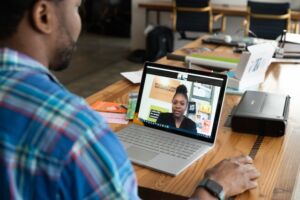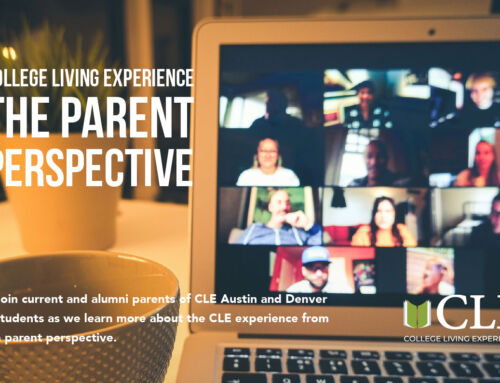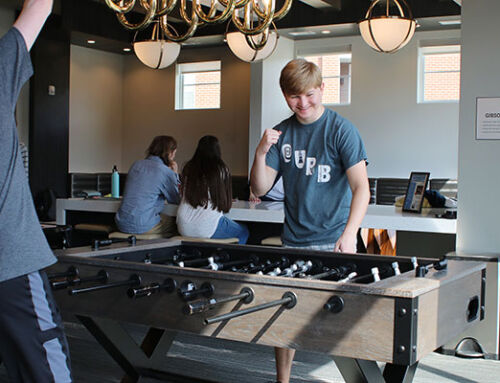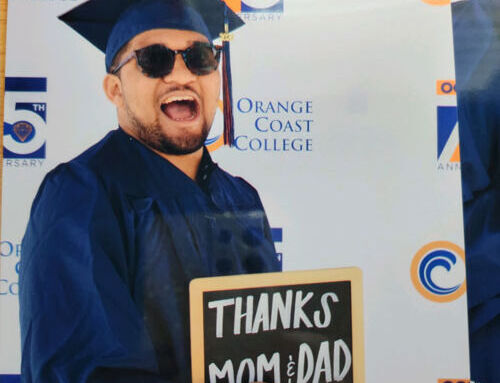By: Amy Radochonski
 As we enjoy the holiday season, we want to delve into the topic that’s on the minds of many parents: preparing to have your CLE student home for the holidays. CLE families receive unique coaching and training in this area we want to share with others who may be planning for this transition home now or in the future. It’s important to acknowledge that every family and situation is unique and evolving as their child ages, making it challenging to provide a one-size-fits-all guide.
As we enjoy the holiday season, we want to delve into the topic that’s on the minds of many parents: preparing to have your CLE student home for the holidays. CLE families receive unique coaching and training in this area we want to share with others who may be planning for this transition home now or in the future. It’s important to acknowledge that every family and situation is unique and evolving as their child ages, making it challenging to provide a one-size-fits-all guide.
However, there are several common themes that we can explore together. We highlight key areas of support we provide to families and dive into what to expect for college age kids returning home.
For some college students, this may mark their first extended visit home, especially as winter break approaches. Questions may arise about what has changed, what remains the same, and what the “new normal” will be upon returning home. For example, some students may be wondering whether they will have the same rules, chores, or expectations when they come home. Others may want to know if their room has changed.
As parents, you may have some questions, or even anxiety, about how this homecoming will play out. These questions linger for everyone involved, adding an element of uncertainty to the holiday season. And, that’s alright, because holiday stress is universal.
Whether your child is on an academic or vocational track, this time of year tends to be hectic. Those working in retail or at grocery stores, for example, may find themselves in the thick of the holiday rush chaos, while academically-focused students grapple with finals, projects, and exams. Both may mean they need time to relax and unwind from the stress of the fall term.
Your child may be experiencing a range of emotions, from the euphoria of newfound confidence to the disappointment of unmet expectations. Social opportunities and academic experiences may not have unfolded as anticipated, leading to a spectrum of emotions they are still learning to manage.
At CLE, our aim is for students to stretch their wings, fostering independence and growth. As they return home, we understand that this transition can be both exciting and challenging for families. We want to offer tips for meaningful connections, and guide you on supporting their continued growth and independence while they’re home for the holidays.
Strategic Preparation for the Holiday Homecoming
During the holidays, meticulous preparation is a cornerstone for creating the smoothest transition possible. Balancing the joy and potential challenges of having your CLE student home requires proactive measures. Let’s explore some essential steps to ensure a smooth transition during this festive period.
 1. Discuss Expectations Early
1. Discuss Expectations Early
Preparation begins with setting clear expectations. As parents, you have the right to establish guidelines tailored to your family’s dynamics. Whether it’s curfew, wake-up time, or household contributions, having a transparent conversation beforehand is key. This dialogue can take various forms—verbal, written, or a combination—to ensure everyone is on the same page.
2. Ask the Student about Their Desired Support
The holidays present an opportunity to shift the parent-to-child dynamic toward a more adult-to-young adult relationship. Engage your student in a conversation about the support they’re looking for during their time at home. Encouraging them to express their needs fosters a sense of independence and reinforces the idea that their opinions hold weight in the family dynamic.
3. Seek Input for an Enjoyable Holiday
Involve your child in decisions about holiday activities and support. Asking questions like, “What would make the holidays more enjoyable for you?” empowers them to contribute to the planning process. Recognizing and implementing their preferences adds value to their opinions, nurturing a healthy relationship dynamic.
4. Share Expectations and Ground Rules
Establish age-appropriate ground rules and expectations for the home. Consider factors such as schedules, quiet hours, and the needs of other family members. Clear communication about expectations helps create a supportive environment where everyone’s needs are considered.
 5. Discuss Travel Plans
5. Discuss Travel Plans
Navigating travel plans can be complex. Discuss travel arrangements, identify the best person to contact in case of issues, and ensure your student is well-prepared for their journey. Providing information about who to reach out to in different situations ensures a smooth travel experience for everyone involved.
6. Inform Family Members about Visitors and Events
Keep everyone in the loop regarding visitors and holiday events. Advance notice of family gatherings, dinners, and parties allows your young adult to anticipate and prepare. Avoiding surprises ensures a more comfortable transition and sets the stage for positive interactions.
7. Allow Choice and Clarify RSVPs
Encourage your young adult by allowing them to choose their level of participation in holiday events. Discuss the schedule and clarify whether an RSVP is required in advance. Providing choices in the holiday itinerary promotes a sense of autonomy and helps manage expectations.
Having information available, creating a calendar in advance, and treating your children similarly to what they’re used to at CLE can be quite helpful during the holidays.
Building Connections During the Holiday Season
Now that you’ve laid the groundwork for a successful homecoming, let’s explore effective ways to connect with your young adult during the holidays. As family dynamics come into play and everyone settles back into the home, focusing on the basics and maintaining open communication becomes crucial.
 1. Stick with the Basics
1. Stick with the Basics
While the holidays bring joy, the influx of family members and the challenges of travel can also be stressful. Stick to the basics—the tried-and-true routines and strategies that have worked for your family in the past. This stability can provide a reassuring foundation amid the holiday hustle.
2. Be Curious (Not Interrogatory)
Engage in open-ended conversations with your student, steering away from assumptions. Whether they’ve had a challenging time at school or are navigating new friendships, being genuinely curious allows for a more adult-to-young adult dialogue. This approach fosters a comfortable environment for sharing and bonding.
3. Validate Their Experiences
Validation is a powerful tool. Whether your student expresses frustration or excitement, acknowledging their feelings helps open lines of communication. Validating their experiences, whether positive or challenging, reinforces their sense of place within the family and encourages collaboration.
 4. Collaboration Is Crucial
4. Collaboration Is Crucial
Shift from a managerial to a consultant role, collaborating with your young adult. Ask for their input on making the holiday special and working together on shared responsibilities. This collaborative approach empowers them to contribute to the planning and execution of family activities.
5. If You’re Not Sure, Ask
Maintain a spirit of curiosity by asking your young adult what they need. Be it suggestions, a listening ear, or collaborative problem-solving, understanding their preferences contributes to a more supportive and communicative relationship.
6. Give Them Space to Solve Their Own Problems
Encourage independence by allowing your student to propose solutions to challenges that may arise. While remaining engaged in the discussion, let them take the lead in solving problems. This is a great way to promote the sense of autonomy they’ve been cultivating at CLE and college life.
7. Don’t Be Afraid to Pause
 In moments of stress or strong emotions, don’t hesitate to slow down and pause. You have the right as a parent to step back, preventing their urgency or anxiety from becoming yours. Communicate your need for space if necessary, allowing time for reflection before addressing concerns.
In moments of stress or strong emotions, don’t hesitate to slow down and pause. You have the right as a parent to step back, preventing their urgency or anxiety from becoming yours. Communicate your need for space if necessary, allowing time for reflection before addressing concerns.
The idea of pausing is a powerful tool, enabling you to respond thoughtfully and maintain a positive atmosphere during the holiday season.
Maintaining Growth and Independence: Bringing CLE Skills Home
Having laid the foundation for a connected and harmonious holiday experience, let’s shift our focus to an equally crucial aspect: maintaining the growth and independence your CLE student has cultivated during their time away.
The skills and tools they’ve acquired at CLE are invaluable, and it’s essential to ensure they maintain and apply them in the familiar environment of home.
1. Aligning Expectations with Growth
As your young adult returns home, it’s crucial to align your expectations with their evolving independence. Resist the temptation to maintain the same expectations from before their CLE experience. Acknowledge their growth and autonomy by expecting them to be contributing members of the household. This shift is integral to fostering their continued development.
 2. Responsibilities for Self-Management
2. Responsibilities for Self-Management
Encourage your child to take ownership of certain responsibilities, reinforcing the independence they’ve developed at CLE. Some key examples:
- Laundry: Entrust them to manage their own laundry, maintaining the responsibility for this essential task.
- Schedules: Support them in creating and managing their daily schedules, balancing obligations and personal activities.
- Making Plans: Encourage them to independently make plans, ensuring they communicate effectively and responsibly.
3. Contributing Beyond the Basics
Build on common expectations by adding more responsibilities to their plate. This not only challenges them but also reinforces a sense of contribution. Some additional contributions could include:
- Meal Planning: Involve them in the family’s meal planning process, giving them a role in deciding and preparing meals.
- Cooking: Enlist their help in cooking, allowing them to take on tasks such as preparing side dishes or assisting with the main course.
- Errands and Driving: Task them with running errands or driving siblings, fostering a sense of responsibility and contribution.
- Family Events: Encourage participation in family events, ensuring they are actively engaged and contributing to shared experiences.
 4. Evolving Expectations for Empowerment
4. Evolving Expectations for Empowerment
Recognize the empowerment that comes with increased responsibilities. By trusting them with more substantial tasks, such as cooking a dish for a family gathering, you demonstrate confidence in their capabilities. This shift in expectations can be a powerful motivator for continued growth.
5. Managing Challenges
Anticipate challenges that may arise during the holiday season. Understand that your role is to manage your boundaries and emotions, not to solve every issue for your young adult. By discussing expectations and proactively assigning responsibilities, you aim to minimize last-minute urgent needs, fostering a more harmonious and collaborative environment.
As you navigate the holiday season, we encourage you to embrace the collective effort in nurturing connections, independence, and growth. By implementing the insights shared in this guide, you’re well-equipped to create a holiday experience that not only celebrates the joy of family—but also supports your young adult’s journey toward independence and success.
Happy Holidays from all of us at CLE!
 Amy Radochonski is President of CLE. Previously, she helped lead CLE for 15 years as its VP of Programming. Amy has 22 years of experience in special education and as a behavioral consultant. She is also actively engaged in communities seeking to elevate experiences for neurodiverse students in higher education and the workplace. Radochonski is an alumna of the University of Oregon, holding a B.A. in Educational Studies, endorsed in Special Education, and a master’s in Educational Leadership.
Amy Radochonski is President of CLE. Previously, she helped lead CLE for 15 years as its VP of Programming. Amy has 22 years of experience in special education and as a behavioral consultant. She is also actively engaged in communities seeking to elevate experiences for neurodiverse students in higher education and the workplace. Radochonski is an alumna of the University of Oregon, holding a B.A. in Educational Studies, endorsed in Special Education, and a master’s in Educational Leadership.








